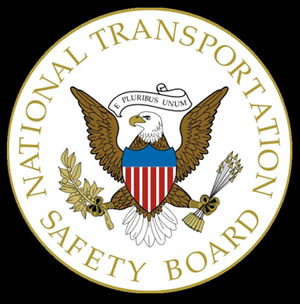
In an historic vote, the National Transportation Safety Board recommended today that all 50 states lower the legal limit from 0.08 to 0.05 for driving under the influence.
At the present time, all 50 states have a limit for the alcohol concentration in any person’s blood or breath of 0.08. Anyone who operates a motor vehicle with a BAC of 0.08 or higher would be guilty of DUI and subject to a driver’s license suspension.
The law in Illinois provides that a person is per se guilty of DUI if that alcohol concentration is 0.08, regardless of whether they are impaired. The DUI statute is 625 ILCS 5/11-501. It provides the following:
(a) A person shall not drive or be in actual physical control of any vehicle within this State while:
(1) the alcohol concentration in the person’s blood or breath is 0.08 or more based on the definition of blood and breath units in Section 11-501.2;
(2) under the influence of alcohol;
Where the driver submits to chemical testing (eg, a breathalyzer or blood test), the driver will receive two tickets, one for violation of section 11-501(a)(1), and another for violation of 11-501(a)(2). Where the motorist refuses chemical testing, the charge will lie in 11-501(a)(2), which alleges that the driver was impaired.
Today’s vote from the NTSB is not binding on the states. The entity has no authority to mandate that any state must change its laws. It would be up to the Department of Transportation to endorse the recommendation, and then incumbent on Congress to issue a mandate.
Under federalism, each of the 50 states has the right to make its own laws on crime and punishment, known as a state’s police power. The federal government cannot write the laws for any of the states. However, the federal government can induce the states to change their laws by withholding federal funding for road construction.
Over the course of time, the legal limit in Illinois has been steadily going down. For example, the legal limit was 0.15 from 1958 until 1967. In that year, it was reduced to 0.10, and finally in 1997, the legal limit was reduced again to the current 0.08.
The NTSB says that 10,000 people die in alcohol-related traffic accidents every year. The group also says that if all 50 states reduced their legal limit to 0.05, it would save almost 1,000 lives each year.
This recommendation from the NTSB has serious implications for Illinois DUI laws. The problem is that every driver arrested under suspicion of DUI has a right to choose whether to submit to chemical testing. If the person submits to a chemical test which discloses an alcohol concentration in his blood or breath of 0.08 or higher, the Secretary of State will suspend his driver’s license (eg, a statutory summary suspension). There is an additional penalty for refusing. Anyone who refuses a chemical test will have a suspension twice as long. Under the law today, a person who fails chemical testing will be suspended for six months, while the person who refuses chemical testing will be suspended for 12 months.
Given that less alcohol would result in a person exceeding the legal limit of 0.05, it should be expected that more drivers would refuse the breathalyzer. And thus, more drivers would suffer a longer summary suspension.
The food and hospitality industry will campaign against lowering the legal limit. Some say that a law such as this would put bars and taverns out of business.
It is dubious whether a lower legal limit will actually increase public safety. The reason is, most alcohol-related traffic accidents occur with a driver who is very intoxicated. The offenders responsible for fatal accidents typically have an alcohol concentration in the blood or breath many times over the legal limit. And so, a legal limit of 0.05 would do nothing to deter these offenders from drinking and driving.
This argument applies to stricter gun control measures. Criminal don’t abide by those laws anyway, so the only people who are affected are law-abiding citizens.
A lower legal limit would ensnare a very large population of otherwise responsible people who had one or two alcoholic beverages at dinner.
It remains to be seen whether the federal government will take action based on this vote by the NTSB. If it does, it could be the beginning of a very significant change in criminal law.

